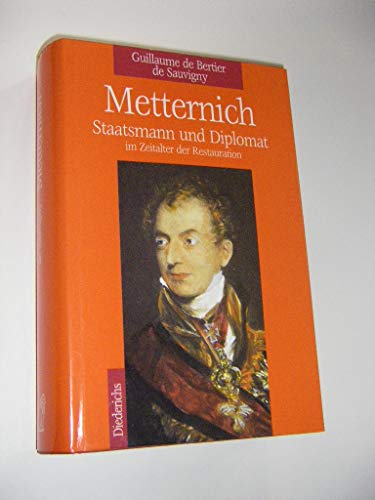

War’s only positive feature, he observed, was its ability to numb the senses to the immense misery it caused. Metternich had many mistresses, one of them Napoleon's sister, and counted almost everybody with power in Europe as a friend or enemy.‘I hate the war and all that it brings: the killing, the pain, the piggishness, the pillaging, the corpses, the amputations, the dead horses – not to forget the rape,’ the Austrian foreign minister Klemens von Metternich told his friend Wilhelmine von Sagan. Drawing on previously unopened archives belonging to the Metternich family, Siemann also presents in full his subject's active personal and social life.

He writes that Metternich idealized Britain's liberal constitution and aimed to make as much room as possible for liberalism and nationalism as was consistent with his overarching aim: the preservation of peace in Europe, a commitment arising from his horror at the death and destruction of the Revolutionary and Napoleonic Wars.

In this biography, Wolfram Siemann argues that the conventional view of Metternich is wrong. For many, he represents everything that the revolutionaries of 1848 opposed. He is usually considered a stubborn conservative and an enemy of liberalism and nationalism, which then went hand in hand. His influence on international affairs in the first half of the century was so profound that the period is sometimes called the Age of Metternich. Metternich held the highest civilian posts in the Austrian Empire without interruption from 1809 to 1848, helped determine the shape of post-Napoleonic Europe, and established the system of international congresses (the Metternich system) that dominated international relations up to 1918 and set a precedent for the League of Nations and the United Nations. This is a major biography of Clemens von Metternich (1773-1859), perhaps the most important European politician of the first half of the nineteenth century.


 0 kommentar(er)
0 kommentar(er)
